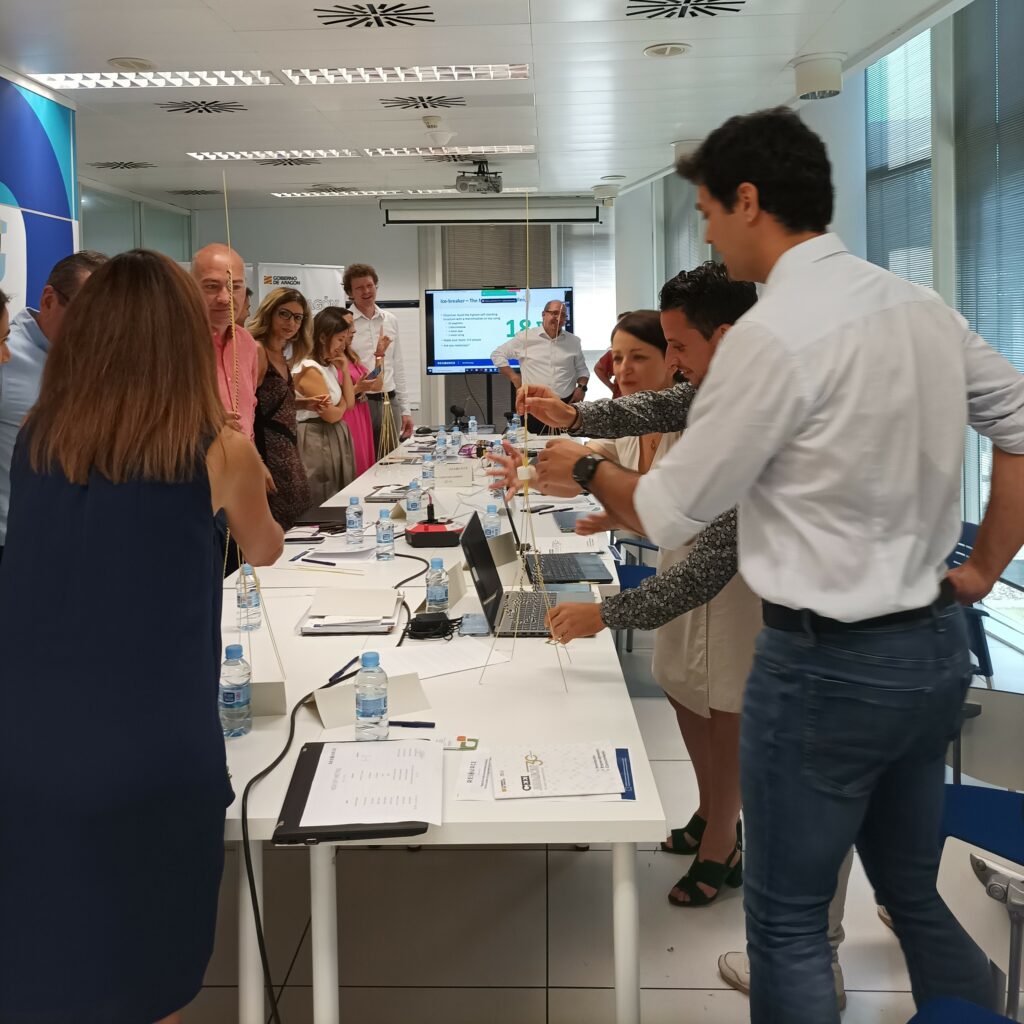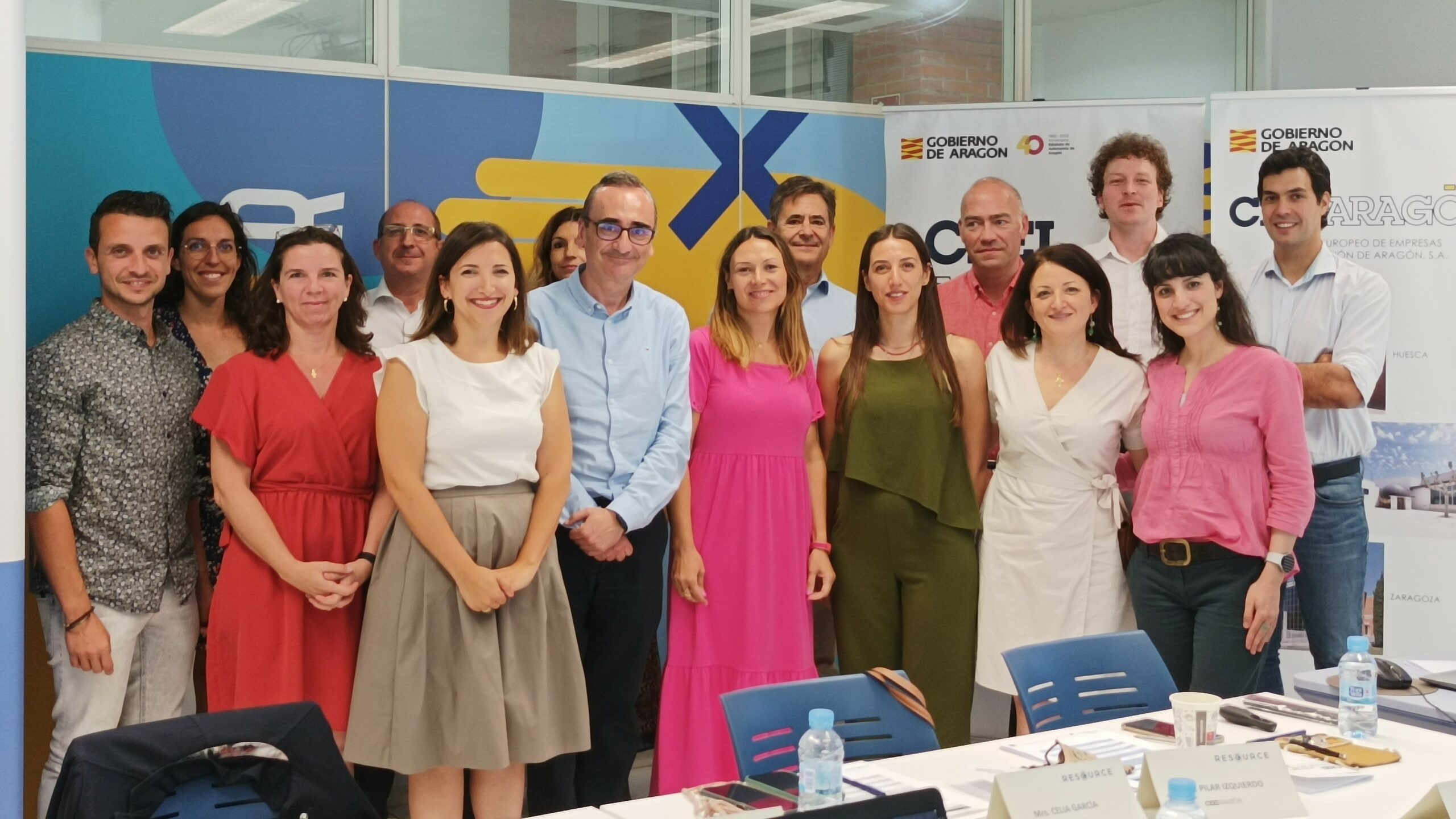This initiative, which has a budget of two million euros from the Horizon Europe programme, expects to leverage around 20 million euros of private funding for circular economy initiatives, demonstrating solutions to finance innovative and replicable investments in other European regions.
Resource, a project whose objective is to obtain all types of private investment over the next three years to finance circular economy business projects, using Aragon as a test bed, has been underway since last July.
Resource is funded by the Horizon Europe programme and led by the Department of Economy, Planning and Employment, through CEEIARAGON (Business and Innovation Centre of Aragon) and the Directorate General of Planning and Economic Development. It is made up of seven partners (three of them from Aragon): the technology centre Aitiip, the National Association of CEEIs (ANCES), the University of Leiden (Netherlands), G.A.C. (France) and EBN (Belgium), as well as CEEI and the Directorate General for Planning of the Department of Economy.
Celia García Anzano, director of CEEIARAGON explains that for Aragon and for the centre she directs, leading this project means “a very important boost to the whole Aragon Circular Aragon Strategy that was launched by the Economy Department of the Government of Aragon in January 2020 of Aragon Circular. Without it and without the previous ecosystem that has already been created, it would not have been possible for a project like Resource to emerge, in which Aragon is going to be the test bed for financing circular economy business projects so that this can then be replicated in other European regions”.
“We think that this is a very important opportunity for Aragon, both for the funds we receive and for the business projects for which we are going to help to obtain this private funding”, says the director of CEEIARAGON.
The project has a budget of approximately two million euros and 36 months of work ahead of it, which began with a meeting held in July attended in person by members of all the entities of the consortium, which together cover the entire value chain (public administration, intermediary organisations, research and investment) and has a strong European dimension. In addition, members of the European Commission and the Coordination and Support Office of the Circular Cities and Regions Initiative (CCRI-PDA) participated online. “The working atmosphere at this first meeting was very good and productive. Concrete issues were addressed, each partner presented their work packages and we moved from theory to practice,” said García.

Thanks to the work of all partners involved, the RESOURCE project will allow reinventing new innovative financing schemes that are operational and ready to finance circular economy investments at local and regional level. In this sense, it is estimated that this project will be able to leverage around 20 million euros of funding for circular economy initiatives, demonstrating solutions for financing innovative and replicable investments in other European regions.
A unique project
The director of CEEIARAGON maintains that “the fact that Resource is a project aimed at obtaining private funding is quite unique. In other words, these are European funds that are aimed at obtaining private funding for business projects, to boost not only the projects themselves, which is important, but also to ensure that they obtain funding that does not come from Europe but from the ecosystem itself”.
García also highlights that “we have been included as a project in the European Commission’s Circular Cities and Regions initiative. This is also important because Aragon is positioning itself internationally as a circular region”.
Resource step by step
Currently, as Celia García explains, “the projects are already being identified because, thanks to the expressions of interest that were launched by the Government of Aragon in 2020 to see how the circular economy sector was in Aragonese companies, at that time 90 projects were identified and 17 of them have already obtained funding in the different R&D calls for the circular economy and now there is another one pending resolution that was published this summer”. García stresses that the task ahead of Resource now is to detect “from among this amalgam that we already have, the nine projects that may be eligible for this funding”.
Currently, in this first phase, a mapping of all the actors in the region is being carried out with a series of surveys. García says that the next step will consist of “a technical team made up of the different partners in the consortium will assess the legal, technical and business aspects, which is where CEEI has a more important role, to see which of the nine pilots will go on to obtain this private funding”.
Subsequently, work will be done with the investors and then “we will work together with the projects and the investors to achieve that match, that fit between them and that financing will reach the projects”, García points out.
“In the last phase, all this work can be replicated in the different territories because we will already have a working model implemented, tested and we will know at that time that it works after these years of work,” adds the director of CEEIARAGON.
García highlights the role of the Government of Aragon, specifically the Department of Economy, Planning and Employment and the Directorate General of Planning and Economic Development “both for the promotion of the Aragon Circular Strategy, without which it would not have been possible for this project to go ahead” and for its participation as a partner: “In this first phase of mapping and detection they have a fundamental role”.
The circular economy: a very present future
For García, the circular economy is no longer the future but the present because “it is on the agendas, on the Aragonese agenda with the Aragón Circular Strategy, on the Spanish agenda with the Spain Circular 2030 strategy and Europe is already earmarking funds for it”.
He assures that “there is a roadmap already marked out in Europe so that our entire productive fabric is both digitising and becoming circular, changing our entire productive model”. In fact, “it is an imperative, a necessity, it is not something we can choose. We can be proud because companies in Aragon are doing an important job and we can see it. There is a real interest and commitment on the part of the business fabric to make this change”.
It is also worth remembering that promoting the circular economy is one of the objectives of the Aragonese Plan for the Promotion of the Social Economy 2022-2025.
The circular economy as a business niche
The circular economy was the focus of an event organised by the Department of Economy on Wednesday 21 September. This free day of a practical nature was held at the CEEI headquarters in Zaragoza with entrepreneurs, companies, organisations, investors and innovative business projects that are in the field of the circular economy and have projects related to the circular economy
